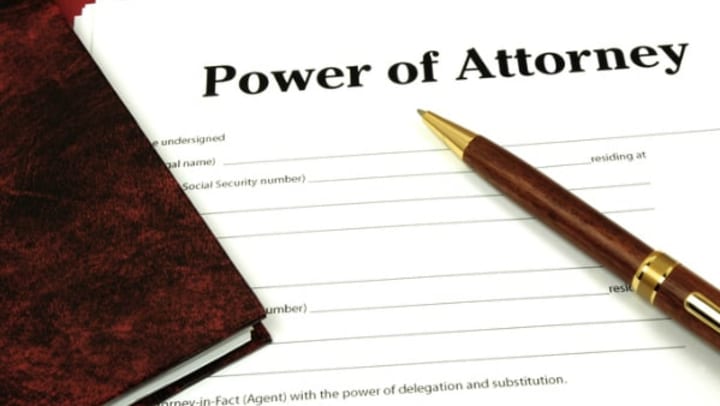Power of Attorney is a legal document that gives one person the legal right to act on someone else’s behalf. The grantor, or person giving the power, is considered the principal. The grantee, or person receiving the power, is called the agent. A General Power of Attorney document would give the agent the ability to make any and all financial and personal decisions for the principal. More common is a Limited Power of Attorney, which specifically defines a limited scope of decision-making ability. There are also variations that deal with timing. For example, with a Springing Power of Attorney, the agent can only make decisions once the principal has been deemed mentally incompetent. With a Durable Power of Attorney, the agent has the ability to make decisions both now and when the principal becomes incompetent.
In the realm of senior care, family caregivers often secure the ability to make financial and/or medical decisions for their loved one with a Limited Power of Attorney document. Such documents are commonly referred to as the Financial POA and Medical POA. Some families will have one person named for both the financial and medical decisions while others choose to divide the responsibility between two people. While a POA can be a useful family-planning instrument for any senior that needs or will need some level of care, Power of Attorney documents can be critical for families dealing with dementia or Alzheimer’s. In the early stages, many people are still able to handle their own affairs like paying bills and taking medication. However, as the disease progresses, most people with dementia/Alzheimer’s will be unable to make sound decisions concerning their finances or care. Therefore, having someone legally able to help with those decisions can quickly become very important.
If your loved one has been diagnosed with Alzheimer’s or dementia and you are going to be the primary family caregiver, you will almost certainly need to establish Power of Attorney. With a POA agreement in place, you will be able to handle important matters for your loved one, such as paying bills, attending to any property owned or other assets, and signing contracts relating to your loved one’s care.
When should you establish Power of Attorney? The answer is as soon as possible, particularly if there is an expectation that your loved one will become mentally incompetent as a result of Alzheimer’s or some other form of dementia.
In next month’s blog, we will cover the basics of a Power of Attorney document and how to execute one.


